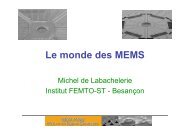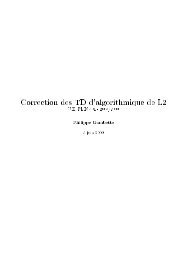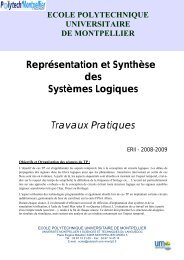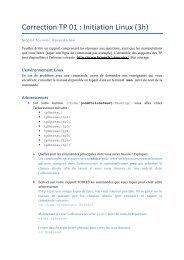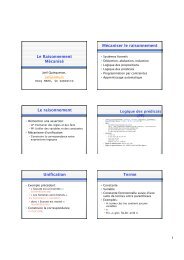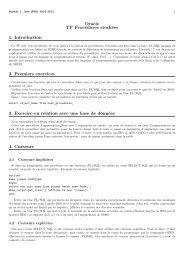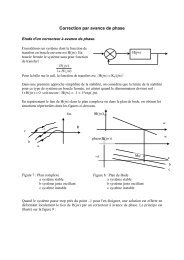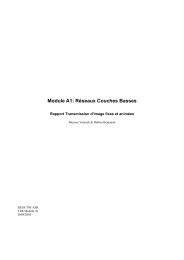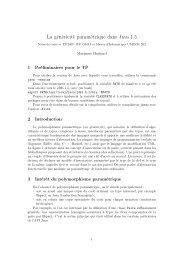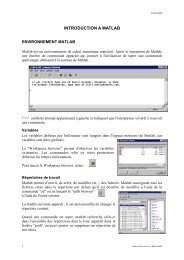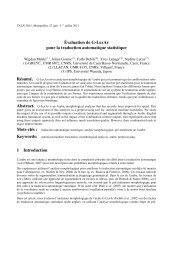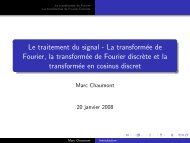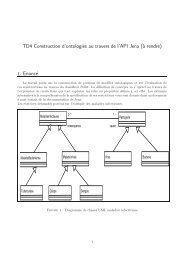Evaluating User Experience in Games: Concepts and Methods - Lirmm
Evaluating User Experience in Games: Concepts and Methods - Lirmm
Evaluating User Experience in Games: Concepts and Methods - Lirmm
Create successful ePaper yourself
Turn your PDF publications into a flip-book with our unique Google optimized e-Paper software.
13 Us<strong>in</strong>g Heuristics to Evaluate the Overall <strong>User</strong> <strong>Experience</strong> 239<br />
games. Besides the evaluation of pervasive games, the evaluation of mobile games<br />
has also been of <strong>in</strong>terest to researchers. In 2006, Nokia released a framework for the<br />
evaluation of the playability of mobile games (Koivisto <strong>and</strong> Korhonen 2006). Their<br />
framework is split <strong>in</strong>to modules conta<strong>in</strong><strong>in</strong>g heuristics for game play, game usability<br />
<strong>and</strong> mobility. The modules do not have to be evaluated at the same time, <strong>and</strong> at least<br />
the modules concern<strong>in</strong>g game play <strong>and</strong> game usability should be able to be applied<br />
to other k<strong>in</strong>ds of games, not only mobile games.<br />
Another approach towards the evaluation of groupware has been published<br />
<strong>in</strong> P<strong>in</strong>elle <strong>and</strong> Gutw<strong>in</strong> (2007). They developed the Table-Collaboration Usability<br />
Analysis (T-CUA) which is based on the Collaboration Usability Analysis (CUA).<br />
It is especially designed to evaluate collaborative groupware <strong>and</strong> concentrates on<br />
issues <strong>in</strong> connection with teamwork. In April 2007, Schaffer released a white paper<br />
<strong>in</strong>troduc<strong>in</strong>g a new version of heuristics for video games (Schaffer 2007). Accord<strong>in</strong>g<br />
to him, the heuristics <strong>in</strong>troduced so far were too vague, difficult to realise, more<br />
suitable to postmortem reviews <strong>and</strong> not applicable dur<strong>in</strong>g the design process. He<br />
provides a set of detailed heuristics with graphical examples for each heuristic which<br />
eases the evaluation significantly, especially when it is not conducted by an expert<br />
<strong>in</strong> the field of computer games. P<strong>in</strong>elle et al. <strong>in</strong>troduced a set of heuristics based on<br />
game reviews <strong>in</strong> 2008 (P<strong>in</strong>elle et al. 2008). For their work, five researchers reviewed<br />
108 game reviews of the GameSpot 9 website <strong>and</strong> categorised the issues found <strong>in</strong>to<br />
10 f<strong>in</strong>al heuristics. Accord<strong>in</strong>g to P<strong>in</strong>elle et al., this approach offers the possibility<br />
to evaluate a game’s usability without review<strong>in</strong>g unnecessary technical issues <strong>and</strong><br />
issues related to enterta<strong>in</strong>ment.<br />
Based on the idea of heuristics for pervasive games by Röcker <strong>and</strong> Haar (2006),<br />
Jegers has <strong>in</strong>troduced a study <strong>in</strong>vestigat<strong>in</strong>g the special characteristics <strong>and</strong> issues of<br />
pervasive games (Jegers 2008). He criticises the approach of Röcker <strong>and</strong> Haar as<br />
be<strong>in</strong>g too focused on Smart Home technology <strong>and</strong> the evaluation as be<strong>in</strong>g too theoretical.<br />
Therefore, Jegers has developed a pervasive game <strong>and</strong> conducted an iterative<br />
evaluation us<strong>in</strong>g different methods. When compar<strong>in</strong>g his f<strong>in</strong>d<strong>in</strong>gs to Desurvire’s<br />
HEP (Desurvire et al. 2004) <strong>and</strong> to traditional usability issues, he found out that<br />
there are several problems that are not covered by the aforementioned pr<strong>in</strong>ciples.<br />
Therefore, he suggests further methodological research <strong>in</strong> this area.<br />
13.5 <strong>User</strong> <strong>Experience</strong> of <strong>Games</strong><br />
With<strong>in</strong> recent years, the term “user experience” has become a buzzword with<strong>in</strong><br />
the community focus<strong>in</strong>g on HCI. Accord<strong>in</strong>g to Hassenzahl <strong>and</strong> Tract<strong>in</strong>sky (2006),<br />
this is the counter-reaction to the more dom<strong>in</strong>ant task <strong>and</strong> work-related usability<br />
paradigm. Still, this is not a completely new concept. The American philosopher<br />
<strong>and</strong> psychologist John Dewey described experiences to be “not mere feel<strong>in</strong>gs; they<br />
9 http://www.GameSpot.com



